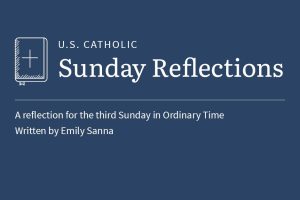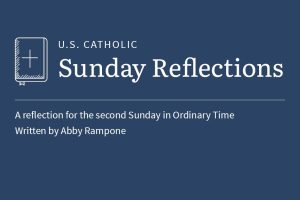Readings (Year C):
Amos 6:1a, 4 – 7
Psalm 146:7, 8 – 9, 9 – 10
1 Timothy 6:11 – 16
Luke 16:19 – 31
Reflection: Do not be indifferent to the cry of the poor
On the surface, there are two basic interpretations of the parable of the rich man and Lazarus that we hear in today’s gospel. The most obvious is Jesus’s concern for the poor, expressed so forcefully in Luke’s earlier account of the Sermon on the Plain (6:20-26). The other is the limit of divine revelation to induce repentance and conversion. In the words of one biblical commentator, the resurrection “will have no effect on those who are determined not to believe.”
But what lies beneath these interpretations? What is the provenance or history of the rich man’s sin? What creates the conditions for his sinful indifference? To my reading, it can be attributed to one main flaw: that he feels he has “arrived,” that he can step out of the flow of life, of becoming, and ensconce himself in a world of his own devising.
There is nothing wrong, per se, with a well-prepared meal or a finely woven garment. Indeed, these things might even express the particular genius of the chef or the designer who created them, and in their way lend glory to God who communicates through our senses and wants us to share our gifts. The problem is that the rich man feels these things exist for his benefit alone.
Unlike Lazarus, who is covered in sores, the rich man lacks even a metaphorical “wound” through which God’s love can enter. His heart is “covered” in its garment, and he is so well fed that he sated of any spiritual hunger. He has no desire, no incentive, to grow in virtue, and cannot even deign to look down at the situation of those right outside his door. How ironic, then, that in the afterlife it is he who must “raise his eyes” to Lazarus as he actuates a verse from the book of Proverbs: “He who shuts his ear to the poor man’s cry shall himself plead and not be heard” (21:13).
In many ways, the man reminds me of another of character in a parable, the wealthy landholder who stores up all his grain to “rest, eat, drink, [and] be merry” (Luke 12:19). Both men misinterpret material success as a means of freedom, entitlement, and social mobility when in reality it has paralyzed the part of themselves that will outlive their temporary prosperity: their soul, and its openness to sharing both trials and blessings with others.
The documentary filmmaker Godfrey Reggio—who spent fourteen years in monastic life before his artistic vocation called him elsewhere—once said that “sometimes success turns you into a petrified forest. It calcifies you into thinking you’re supposed to be who you think you are.” This is the false success of the rich man in the parable, who is numb to the pinch of holy fear and with it the need for repentance. The gospel would have us witness against such calcification, maintaining a nimbleness of spirit that finds us willing to drop our defenses, soften our hearts, and amend our lives while there is still time to revise self-preservation into self-gift.













Add comment